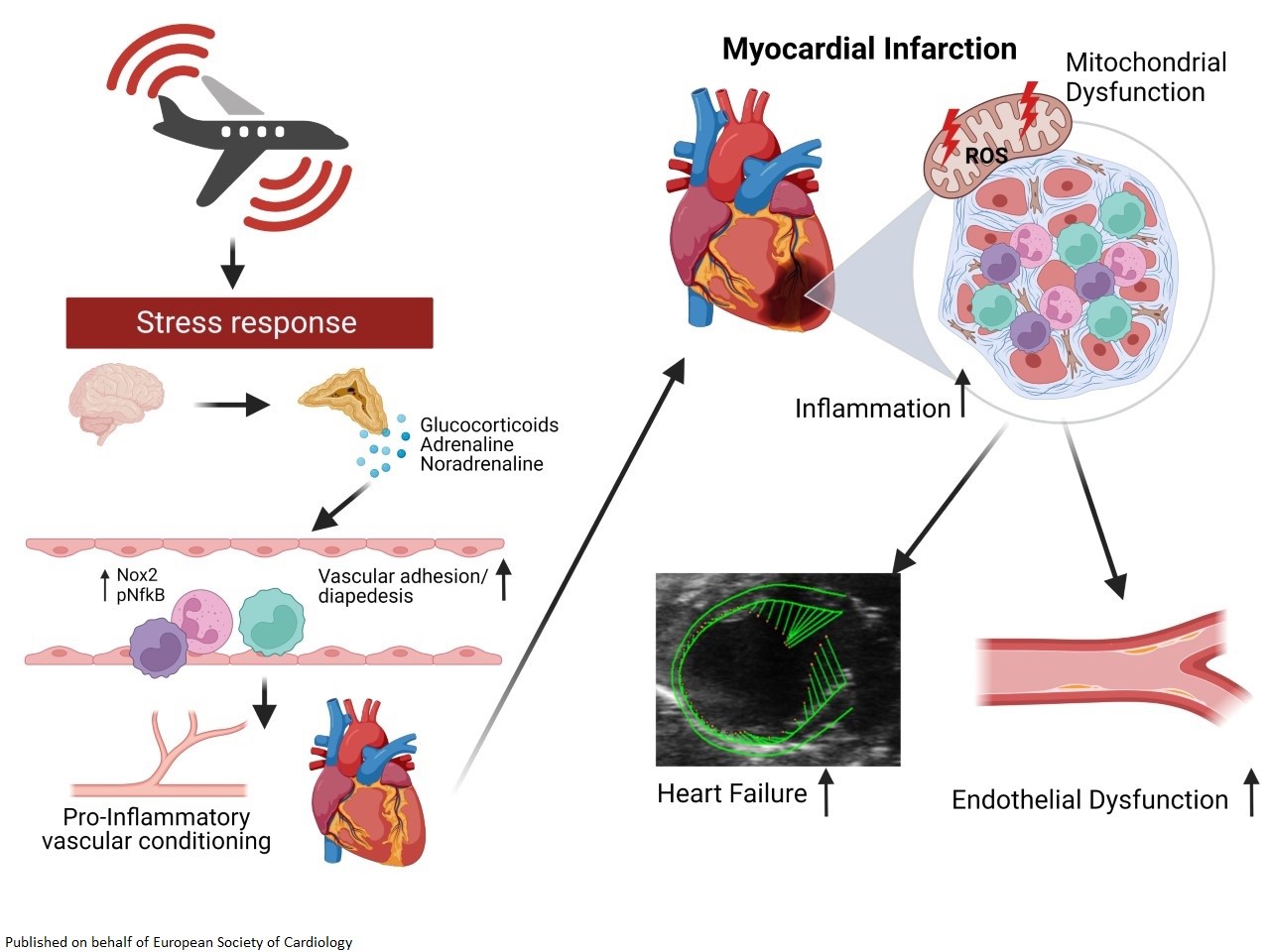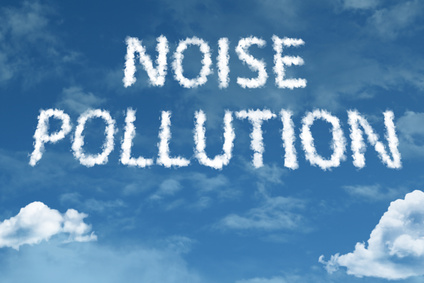High blood pressure, smoking, and diabetes mellitus are bad for the heart and blood vessels. Noise impact researcher and cardiologist Prof. Thomas Münzel of Mainz University Medical Center says traffic noise should also be considered an important cardiovascular risk factor. Thomas Münzel is Principal Investigator at the DZHK and has been researching the effects of noise on heart health for years. The latest results - published in the journal Cardiovascular Research - indicate that traffic noise may play a significant role in developing ischemic heart disease and in the further course of the disease. Coronary heart disease is caused because coronary arteries calcify. If the vessels close wholly, this leads to a heart attack.
Initially, in a mouse model, Professor Münzel and his team found that exposure to aircraft noise for four days increased inflammation in the vessels of the test animals. Compared to mice not exposed to noise, the number of free radicals increased in the noise-exposed animals. They had a marked inflammatory response and impaired vascular function.
Those exposed to aircraft noise have worse inflammation levels after a heart attack
These experimental findings were confirmed with population-based Gutenberg Health Cohort Study observations. The study's first and lead authors, Michael Molitor, M.D., and Professor Philip Wenzel of the University Medical Center Mainz, Germany, explained, "We learned from our studies that aircraft noise exposure before myocardial infarction significantly increases subsequent cardiovascular inflammation and exacerbates ischemic heart failure, which is favoured by pro-inflammatory vascular conditioning. Our translational findings show that people with a history of noise exposure have a worse outcome when they suffer an acute myocardial infarction later in life." Michael Molitor and Philip Wenzel are part of the DZHK network as researchers and principal investigators, respectively.
Study participants with a history of myocardial infarction showed increased C-reactive protein (CRP; indicative of increased inflammatory response) if they had been exposed to aircraft noise and subsequently developed a noise annoyance response. Further, the heart pumped worse after a heart attack in these patients than in those not exposed to aircraft noise.
The study is the first translational study to examine the effects of aircraft noise on acute myocardial infarction.
Publication:
Aircraft noise exposure induces pro-inflammatory vascular conditioning and amplifies vascular dysfunction and impairment of cardiac function after myocardial infarction Cardiovascular Research https://doi.org/10.1093/cvr/cvad021



